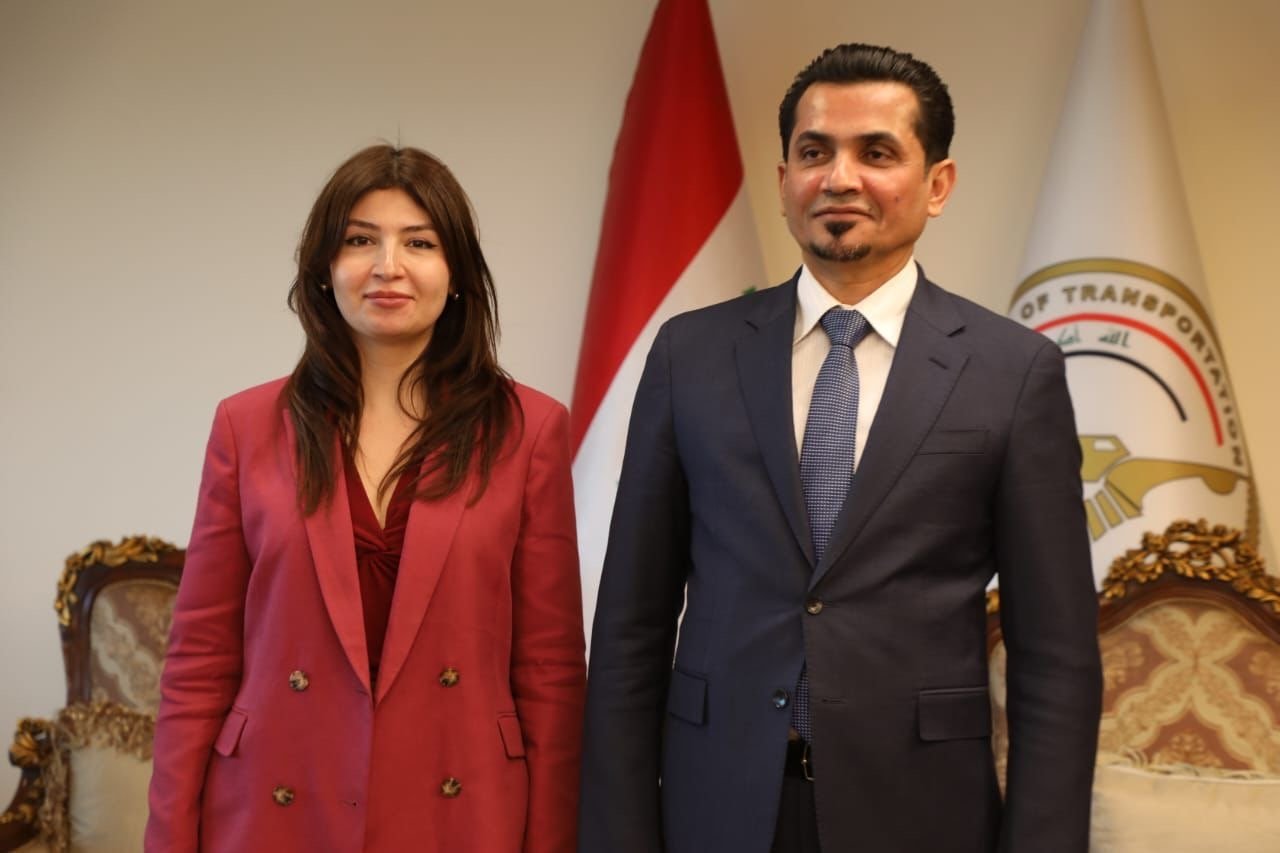© Turkuvaz Haberleşme ve Yayıncılık 2026
The Iraqi Development Road will ensure regional economic integration and bring significant income to countries participating in the billion-dollar project, Iraqi Transportation Minister Razzaq Muhaibis al-Saadawi said.
Speaking to Daily Sabah, al-Saadawi said: “The Development Road project will strengthen economic ties. Several projects will be realized in trade and industry. It will be a new international corridor.”
“We have created a council of ministers as Iraq, Türkiye, Qatar and the United Arab Emirates. The four countries’ transportation ministers will meet in the upcoming days. The ministers will have met just two months after signing the agreement. The first quadrilateral meeting of the committee has already been realized.”
In April, a preliminary agreement was signed between Iraq, Türkiye, Qatar and the UAE to cooperate on the Development Road project.
“Neighboring countries are also keen to invest in the project,” al-Saadawi underlined.
The Iraq Development Project is a massive $17 billion infrastructure and transportation project that will link the Persian Gulf to Europe via railways, roadways and ports via Iraq and Türkiye.
It was initially named the Dry Canal but was renamed the Development Road project during a meeting between President Recep Tayyip Erdoğan and Iraqi Prime Minister Mohammed S. Al Sudani last year. It is considered the foundation of a non-oil sustainable economy.
“Al-Faw has several advantages. It is located on 54 square kilometers (20.85 square miles). It will be the region’s biggest port. It lies on an open sea, meaning it can also host big ships up to a depth of 19.5 meters.”
A second project will link al-Faw and Umm Qasr, the country’s second biggest port and close to Basra. The road connecting the two ports has been completed by 73%. Moreover, the minister pointed out that works are ongoing for an underwater tunnel, which has been 45% completed.
Al-Saadawi reiterated that the first stage of al-Faw will be completed in mid-2025, after which it can start partial operation. “We are negotiating with internationally professional companies on the operation of the port. The cadres are being created. With all the regulations being done right now, the port can instantly operate as soon as it opens.”
He elaborated that the port would be complex and would have several components. “Refineries for petrochemicals, natural gas filling stations, ship havens and water treatment facilities will be part of the port. Outside the port, there will be industrial zones that will be ready for investment. There will also be seaside areas for tourism,” the minister pointed out.
The port will be the region’s biggest industrial and tourism zone, as al-Faw constitutes the heart of the Development Road project, al-Saadawi said.
The minister added that expropriation possibilities for the region’s land are being looked into to facilitate the interest of investors.
He indicated that Iraq worked with an Italian company, PEG Infrastructure, for the feasibility plan of the Development Road that will link al-Faw to Türkiye through a 1,200-kilometer road and railway line.
“The company proposed three alternative routes, and we chose the most feasible one. The itinerary chosen for the project is the most ideal one in terms of cost and time. There is also no big need for bridges and tunnels for this route. There will only be one bridge,” he said.

On the other hand, al-Saadawi also addressed questions about whether and how Al-Faw could affect other regional ports and transit corridors.
“Compared to the Suez Canal, the Development Road is more advantageous. It will shorten the route by 12-15 days. The story is that Türkiye and Iraq, with their geographical location, are privileged.”
“We are in no political rivalry. This is a project far from politics and completely focused on the economy,” the minister emphasized, saying that no contact exists currently with Egypt, but talks have taken place with Iran, which “views it positively.”
The Development Road project, reaching from the port to the Turkish border, is seen as an alternative option in possible regional conflicts or wars since China's Silk Road does not pass directly through Iraq.
Upon completion of the project, it is estimated that shipments that currently take approximately 45 days from the Cape of Good Hope and around 35 days from the Red Sea could be completed in just 25 days.
Asked whether the expected 2025 elections could affect the megaproject, al-Saadawi said that a change of government would not influence the Development Road.
The minister highlighted that a special law for the al-Faw region is being worked on, saying that this would guarantee and facilitate the work of business people and investors.
A free trade zone will also be established within al-Faw, he said.
“Moreover, a big part of this year’s budget was allocated for al-Faw. Apart from al-Faw, the cost is only for the highway and railway, which will cost $17 billion. The budget will also be used to ensure security. The Iraqi Army will be responsible for the security,” al-Saadawi said.
